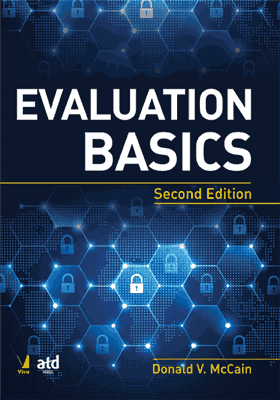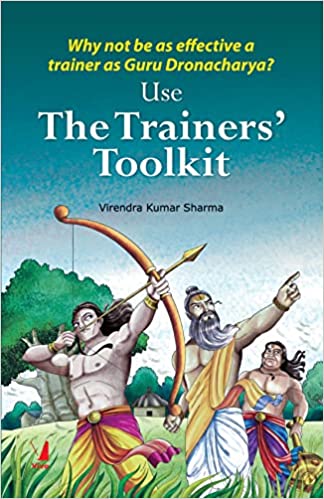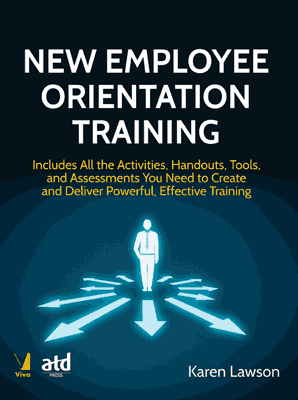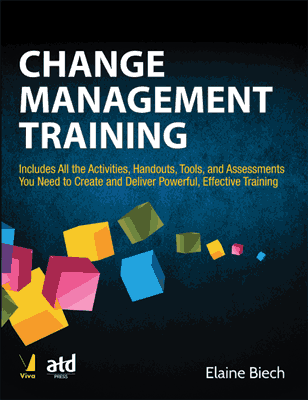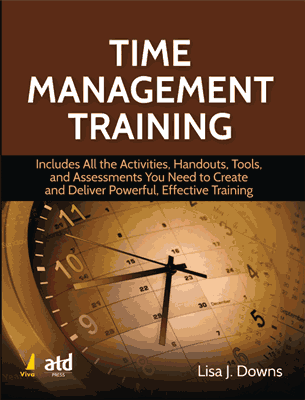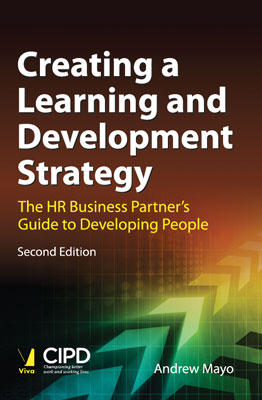Evaluation Basics, 2/e
Evaluation Basics, 2/e
₹805.50 ₹895.00 Save: ₹89.50 (10%)
Go to cartISBN: 9789387925304
Bind: Paperback
Year: 2019
Pages: 222
Size: 7 x 9.5 Inch
Publisher: ATD Press
Published in India by: Viva Books
Exclusive Distributors: Viva Books
Sales Territory: India, Nepal, Pakistan, Bangladesh, Sri Lanka
Your training: Do they love it or live it?
How do training professionals show the impact their programs are making? Positive feedback only goes so far in confirming success. And entertainment value, while important, isn't the truest measure of your effectiveness.To find out whether your participants are applying what they've learned on the job, you need a good evaluation strategy—one that connects evaluation to performance, program design, and bottom-line value.
Each chapter of Evaluation Basics focuses on a critical aspect of developing and implementing an evaluation plan for a face-to-face or virtual training program. You'll not only learn about the methods and instruments you can use to determine the value of your program, but you'll also get help effectively communicating results.
Part of ATD's Training Basics series, the second edition of Evaluation Basics offers practical examples, worksheets, and new case studies to further your understanding.
Target Audience:
Useful for Management Students and Managers and HR Personnel.
Contents:
About the Training Basics Series
Preface
Chapter 1. Evaluation for You and for Your Client • How Evaluation Basics Can Help You • What's New in This Edition • How This Book Is Organized • Let's Go! • Getting It Done
Chapter 2. An Overview of Evaluation • What Is Evaluation? • Purposes of Evaluation • Benefits of Evaluation • So, Why Doesn't Everyone Do Evaluations? • Reasons for Poor Training Evaluations • Roles and Responsibilities for Evaluation • Building on the Four Levels of Evaluation • Getting It Done
Chapter 3. Evaluation and the Design Process • Criteria for Course Evaluation • Key Concepts: Design and Evaluation • Online and Virtual Classroom Training • Internal Certification Programs and Evaluation • The Integration of Evaluation and Design • Developing the Evaluation Plan • Instruments: Advantages and Disadvantages • The Project Plan • Getting It Done
Chapter 4. Level 1: Audience Reaction • Defining Level 1 Evaluation • Reasons for Conducting Level 1 Evaluations • Level 1: What It Includes and Excludes • Advantages of Level 1 Evaluation • Disadvantages of Level 1 Evaluation • Guidelines for Level 1 Evaluation • An Example of Level 1 Evaluation • Common Errors in Level 1 Evaluation • Improving Level 1 Evaluation • Getting It Done
Chapter 5. Level 2: Learning and Application During Training • Defining Level 2 Evaluation • Reasons for Conducting Level 2 Evaluation • Level 2: What It Includes and Excludes • Advantages of Level 2 Evaluation • Disadvantages of Level 2 Evaluation • Guidelines for Level 2 Evaluation • Developing Tests and Testing • Why Participants Resist Testing • Types of Level 2 Assessments and Their Advantages and Disadvantages • Getting It Done
Chapter 6. Level 3: Transfer to the Job and the Environment • A Working Definition of Transfer • The Business Case for Transfer • What Level 3 Evaluation Includes and Excludes • Requirements for Transfer • Guidelines for Transfer • Barriers to Transfer • Evaluation of the Design to Ensure Transfer • Instruments and Methods to Support and Assess Transfer • Make Transfer Part of Your Organization's Processes • The Effect of Environment • Getting It Done
Chapter 7. Level 4: Impact and ROI • A Working Definition of Level 4 Evaluation • The Challenges of Level 4 • Benefits of Conducting Level 4 Evaluations • Questions Clients Ask • Organizational Drivers for ROI • Guidelines for Level 4 Evaluation • Steps in Conducting an Impact and ROI Analysis • Other Measures of Impact • Getting It Done
Chapter 8. Evaluation Biases and Communicating the Results • Kinds and Implications of Bias • Components of an Evaluation Report • The Communication Plan • Getting It Done
Chapter 9. A Final Thought • Design and Evaluation • Demonstrating Value • Readiness • Getting It Done
Appendix A: Rating Guides for Courseware and Facilitation
Appendix B: Solutions to Case Studies
References
Additional Resources
About the Author
About the Author:
As founder and principal of Performance Advantage Group, Donald V. McCain has dedicated the organization to helping companies gain a competitive advantage through the development of their human resources. With more than 28 years of corporate and consulting experience, McCain focuses on design and development of custom learning experiences in leadership, sales and marketing, and many other areas of professional development that result in improved business unit and individual performance.
McCain is a senior faculty member and dean of the Sandermoen School of Business, University of Fredericton, which is an accredited online university offering diploma-to-degree and master's degree programs. McCain teaches graduate MBA/EMBA courses in the areas of leadership, governance, sustainability, and human resource management. He also consults in HRD processes, including design and development, competency identification and development, certification, evaluation (including transfer and return on investment), presentation and facilitation, and managing and marketing the HRD function. Most of his clients are Fortune 100 companies across various industries. His work is international in scope. McCain has also consulted with many new consultants on the business side of training consulting.
McCain has a bachelor's in business administration, a master's of divinity, a master's of business administration with a concentration in HR and marketing, and a doctorate in education in HRD from Vanderbilt University. He has taught graduate and undergraduate courses for several universities???including Vanderbilt University, Belmont University, Tennessee State University, and University of Phoenix???in various aspects of HRM, leadership, management, organization behavior and theory, business ethics, marketing, and strategic planning. He is the author of Facilitation Basics (ATD 2015), Creating Training Courses (When You?re not a Trainer) (ASTD 1999), and ?Level 4: Results,? chapter 31 in the ASTD Handbook for Workplace Learning Professionals (ASTD 2008). He was also co-author of Facilitation Skills Training (ASTD 2007). Additionally, he has published several evaluation instruments.
McCain lives in Nashville, Tennessee, with his wife, Kathy. He has two married daughters, Kimberly and Karla, and two sons, Colin and Weston. He may be contacted at donpag@bellsouth.net.
